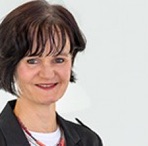Introduction into Feminist Economics
-
Overview6 Topics
-
Background information13 Topics
-
Introduction
-
Definition of feminist economics
-
Origins of feminist economics and important thought-leaders
-
Critiques: Neoclassical vs feminist paradigm
-
Principles of feminist economics
-
5 - Gender-based economic inequalities in data
-
1.The gender pay gap has decreased in the last couple of decades in most countries.
-
2. Women are often underrepresented in senior positions in firms.
-
3. Women are often overrepresented in low-paying jobs
-
4. In many countries, women are less likely to own land and control productive assets.
-
5. Women have often limited control over household resources.
-
6. Gender-equal inheritance systems are not adopted in all countries.
-
Conclusion
-
Introduction
-
Endnotes
-
References
-
Glossary
-
Interactive learningDeepen your knowledge4 Quizzes
-
Training materialExercises for group activities2 Topics
Origins of feminist economics and important thought-leaders
ORIGINS OF FEMINIST ECONOMICS AND IMPORTANT THOUGHT-LEADERS
The origins of feminist economics date back to mid-19th century, certain concerns about the situation of women can be found even in literature of 17th and 18th centuries. However, it gained on importance during the 1990s when the term “feminist economics” was first used.
The key material regarded as founding document of feminist economics was Marilyn’s Waring book “If Women Counted” (1988). This book brought a fundamental critique of how economic growth is measured. Waring pointed out that women’s unpaid work as well as value of nature have been omitted from variables considered to create the economic activity of nations (system of national accounts). Waring’s findings triggered redefinition of gross domestic product by the United Nations.
A further important milestone was establishment of the International Association for Feminist Economics (IAFEE) in 1992, followed by the first volume of the journal Feminist Economics in 1995.
There are many scholars or “thought-leaders” who contributed to development of feminist economics such as the Danish economist Ester Boserup, American economists Marianne Ferber, Barbra Bergmann, Heidi Hartmann or Julie A. Nelson or Indian development economist Bina Agarwal. A list of further names of feminist economists can be found here: https://en.wikipedia.org/wiki/List_of_feminist_economists.
Over time, feminist economics developed its own theoretical base (concepts, analytical frameworks, methodologies) as well as initiatives for its practical application which became a source for political decisions. It gradually evolved in a clearly opposing school of thought to neoclassical economics.
Feminist economics has been also closely interlinked with political and social movements. It is not a single school of economic thought. It’s very diverse and includes many different perspectives. Over the years three main perspectives developed: liberal feminist economics, constructivist feminist economics, and critical feminist economics.






